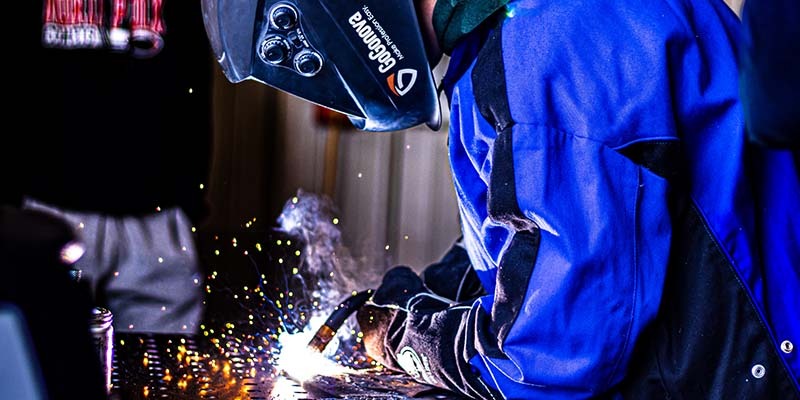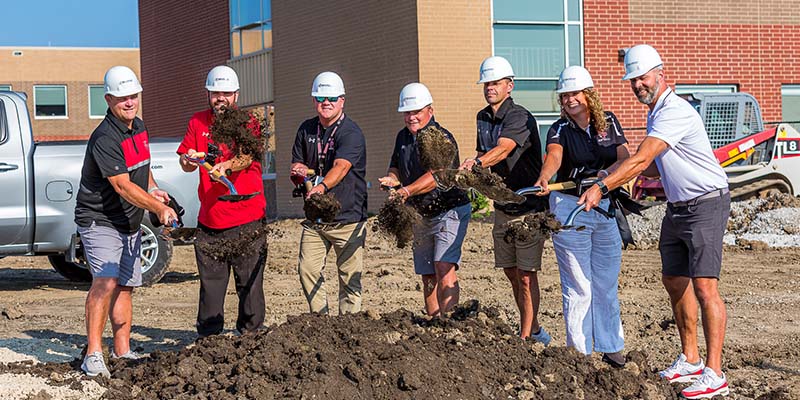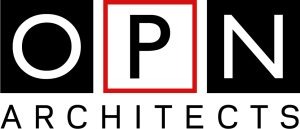Building Tomorrow’s Workforce
How North Polk’s Five R’s Strategy Inspires Iowa’s Fastest-Growing School District
In the hallways of North Polk Community School District, students and staff sport t-shirts bearing a simple but powerful message: “North Polk has my back.” What started as a district-wide initiative three years ago has evolved into something deeper; a visible symbol of an educational philosophy that places relationships at the center of everything. For Superintendent Michael Kline, who leads one of Iowa’s fastest-growing school districts serving 2,407 students across 93.5 square miles, success begins with a foundation most organizations overlook.
“Our mission statement is Learning for All by Learning from All,” Kline explains. “We really try to focus on not just student learning, but how we provide ongoing professional development for our staff and our families in the community so that they have a wealth of understanding on what we’re focusing on as a district.” North Polk has established five core values, each beginning with the letter R: relationships, respect, responsibility, resourcefulness, and resilience. Among Iowa’s 346 school districts, where 45% reported enrollment increases in recent years, North Polk stands out not just for its growth but for its systematic approach to maintaining community connection.
“Relationships are at the foundation of everything that we do as a school district,” Kline says. The district measures this through a biannual survey asking every student from kindergarten through 12th grade a single question: “Do you have a trusted adult at school that you can turn to if you need something?” Their goal is 95% affirmative responses. “We are approaching hitting that goal,” Kline notes, crediting targeted strategies for the improvement.
 Early Foundations and Community Connections
Early Foundations and Community Connections
North Polk’s educational pipeline begins before kindergarten, with preschool programs operating in both elementary buildings that serve the youngest learners. The district offers morning and afternoon sessions, each providing 12 hours of weekly instruction. “We have preschools that’s offered in both of our elementaries that serve kindergarten and below. We have morning and afternoon. We do have midday transportation for those students,” Kline explains. The board recently approved a $150 per semester fee to maintain this transportation service, recognizing its value to working families across the district’s sprawling geography.
For families seeking additional support, North Polk provides a solution. “We have transitional kindergarten for five-year-olds that are maybe on the young side that parents don’t feel like are quite ready for kindergarten,” Kline says. The program follows state gold testing guidelines while offering parents flexibility in their child’s educational timeline. Beyond district offerings, community partners provide additional preschool options and wraparound childcare services.
The district’s unique geography creates both challenges and opportunities. Established in 1956 through the consolidation of five towns—Alleman, Elkhart, Sheldahl, White Oak, and later Polk City—North Polk now includes portions of rapidly growing Ankeny, a city of over 72,000 residents. “The board and I have made a priority to try to work with the city councils and the mayors and the different communities trying to understand their needs and how as both taxpayer funded entities, we work together to be effective and efficient,” Kline explains. With 86% of their tax base residential and limited commercial-industrial property, strategic partnerships become essential for sustainable growth.
 Preparing for Tomorrow’s Workforce
Preparing for Tomorrow’s Workforce
The future of work is reshaping North Polk’s curriculum in real time. When local construction companies told district leaders that artificial intelligence was reducing demand for traditional CAD drawing expertise, the message was clear: students need different skills for tomorrow’s jobs. “One of the construction companies was here talking about how with AI, they are having to hire less and less people with expertise in CAD drawings for projects. And it is more on the students understanding the coding and how to leverage the new technologies in the space,” Kline explains.
This feedback drives North Polk’s Career and Technical Education advisory committee, which meets annually to bridge the gap between classroom learning and workplace reality. “We bring in [the advisory council] annually in April to just have that basic conversation of what is happening in your area of work that we can help start teaching and educating and molding students to be able to be successful when they leave us,” Kline says. The district has developed a quality pre-apprenticeship program in construction and was selected as a semifinalist for the CHIPS challenge, the only district in the state and just 1 of 36 nationwide. However, since then, the U.S. Department of Education has announced the early termination of the CTE CHIPS Challenge. While the competition has ended, North Polk remains fully committed to developing innovative career and technical education (CTE) programming that prepares students for the future.
Iowa receives nearly $12 million annually in federal Career and Technical Education funding, supporting the state’s goal of having 70% of the workforce educated beyond high school by 2025. North Polk leverages partnerships with major employers including Syngenta, Corteva, and John Deere’s manufacturing plant in nearby Ankeny. The district’s drone class exemplifies this forward-thinking approach. “We’re trying to think, well, as industry changes, how do we prepare students to be able to fly those drones, be able to use the data that can be collected with the microchips included in the drones to be able to provide farmers with better information,” Kline explains.
Major Infrastructure Investments
North Polk’s building boom tells the story of a district racing to keep pace with explosive growth. In just four years under Kline’s leadership, the district has completed nine major projects worth close to a million dollars or more each. The centerpiece is an addition to the high school featuring new labs. “We have added a $7 million addition to our high school for a new AG and metals lab and then a construction and woods lab,” Kline says.
The metals facility addresses a critical skills gap in Iowa’s economy. When Kline arrived, the entire district had just one welding machine. The new lab houses 12 welding booths, eliminating the need for students to drive 30 minutes to Nevada for welding classes. “Having the welding here I think will be a big addition for us,” Kline notes. “If we have students that are interested in the welding field, they can take those intro classes here with us. Versus in the past if they wanted to take welding classes, they had to drive to Nevada, round trip an hour, they’re missing out on other electives and courses they could be taking.”
The construction spree included a new elementary building, high school classroom additions, parking expansions, security enhancements with locked entrance systems, middle school expansions, and a baseball-softball complex. “Since I’ve been here, I just finished my fourth year as superintendent. I think we counted nine major projects of close to a million dollars or more that were completed in the last four years,” Kline explains. The rapid expansion highlights enrollment growth from 1,400 students a decade ago to over 2,400 today.
Extracurricular Excellence and “Power Skills”
The baseball-softball complex that recently opened at North Polk serves 115 players across grades seven through twelve who previously practiced on football fields due to inadequate facilities. But for Kline, the investment represents something bigger than athletics. “I think there are a lot of skills such as teamwork and resilience. Power skills are what they call them, collaboration, communication. I mean, there’s all kinds of skills that aren’t directly related to the classroom but are types of skills that in the workforce nowadays, we want people to be able to collaborate,” he explains.
North Polk has set an ambitious target: 85% of students in grades seven through twelve must participate in at least one co-curricular or extracurricular activity. The district currently exceeds this goal at 86%, a remarkable achievement based on intentional programming. When hiring for positions like a new payroll specialist, Kline looks for these same collaborative abilities. “As we interview, we’re going to be looking at how you fit into our organization? What is your ability to communicate at high levels in writing, verbal communication, but then culture wise, can you get along with others?”
The emphasis on “power skills” aligns with broader workforce development trends across Iowa’s education system. With over 2,200 students participating in various activities, North Polk demonstrates that extracurricular engagement scales effectively even during rapid growth. “Can you operate in an organization, 320 plus staff members at a high level to be able to get the work done but do it well?” Kline asks. “And so those power skills are important.” The district’s approach recognizes that tomorrow’s workers need technical competency paired with emotional intelligence and collaboration abilities that traditional classroom instruction alone cannot develop.
 Leadership Philosophy and Future Vision
Leadership Philosophy and Future Vision
Kline operates under a simple rule: “I always tell them; you get two years to play the newbie card. After two years, you can’t play the newbie card anymore,” he says. This philosophy includes his own continuous learning approach. When the district ordered welding equipment for their new facility, Kline made a personal commitment. “I told our instructors, I said, once this is up and running, I want to come in and actually weld some things together so that I can say that I have learned it.”
The hands-on leadership style covers a broader commitment to lifelong learning that permeates district culture. Kline secured his commercial driver’s license to drive buses when needed, recognizing that “bus driver is the hardest position we have to hire.” His daily interactions with students include using a foam Hulk fist for fist bumps, solving a unique problem among enthusiastic young students. “Little kids, you hold out a fist to give them a fist bump, and what do they do? They’re going to punch your hand harder than what you want your hand to be punched,” he explains with characteristic practicality.
Looking ahead, Kline focuses on maintaining North Polk’s intimate culture while serving over 2,400 students. “How do we make sure that we keep that small district community feel as we grow bigger?” he asks. The challenge involves preparing students for careers that may not yet exist while ensuring no one falls through increasingly larger cracks. As North Polk continues expanding from a district of 1,400 students a decade ago, Kline’s leadership philosophy centers on adaptability, genuine relationships, and keeping students at the center of every decision; principles that have guided the district through unprecedented growth while maintaining its community character.
AT A GLANCE
Name: North Polk Community School District
What: One of Iowa’s fastest-growing school districts serving over 2,400 students across five communities
Where: Alleman, Iowa
Website: https://www.northpolk.org/
PREFERRED VENDORS/PARTNERS

OPN Architects is a regional architecture, planning, and interior design firm with more than 117 designers working on education, libraries, public safety, health care, historic, corporate, civic, and recreation projects throughout the Midwest. Our commitment to excellence, and our clients, results in people-driven, award-winning designs.
OPN Architects: www.opnarchitects.com

Because we’re a family-owned lawn care company founded right here in Central Iowa, we make every effort to treat our customers like family. Whether you’re looking for sprinkler system services, aeration and overseeding, or a lawn application program promote healthy growth—we’re here to help.
Total Quality Inc. : https://www.totalqualityinc.com/


